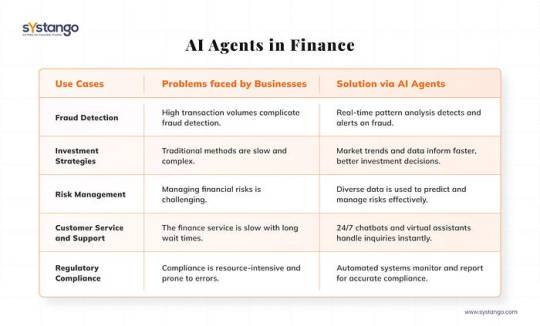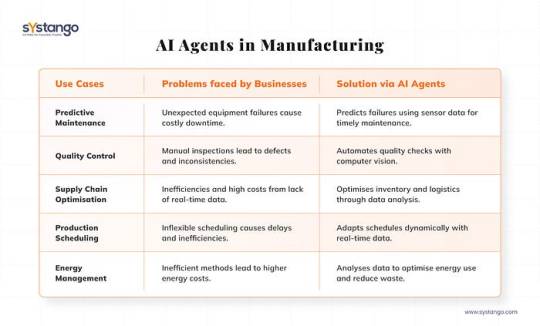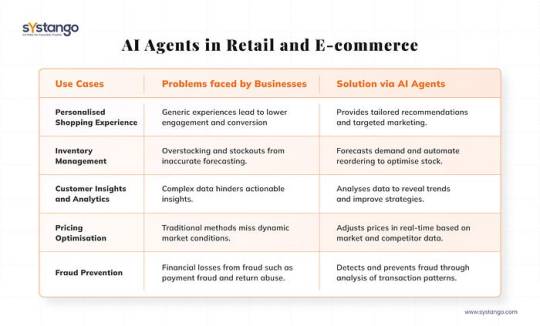#gen ai software development
Explore tagged Tumblr posts
Text
Master Gen AI Software Development with Industry-Backed Certification
Generative AI is revolutionizing software engineering from writing code faster to automating testing and debugging. If you're looking to future-proof your skills, the Certified Generative AI in Software Development course by GSDC is your best first step.
🚀 Why You Should Get Certified:
Learn how to integrate Gen AI models like GPT into development workflows
Automate repetitive tasks and boost code efficiency
Earn a globally respected generative ai for software development skill certificate
Stay ahead in a rapidly evolving tech landscape
📘 Course Highlights: This generative ai for software development course equips you with the skills to use LLMs, prompt engineering, AI coding assistants, and DevOps automation. Whether you're a developer, tester, or architect, this program provides a robust foundation in AI-driven development.
💼 Who Should Enroll?
Developers aiming to master gen ai software development
Engineering leaders implementing AI in SDLC
Tech professionals seeking a generative ai for software development professional certificate
Innovators looking to adopt agile AI tools in their workflow
With AI taking center stage in tech innovation, having a generative ai for software development skill certificate on your résumé signals that you're ready to code smarter—not harder. This GSDC credential validates both your technical ability and future-readiness in AI-enhanced software development.
Make AI your coding co-pilot. Enroll today in the generative ai for software development course and lead the next wave of intelligent software engineering.
🔗 Begin your AI-enhanced coding journey today: https://www.gsdcouncil.org/certified-generative-ai-in-software-development
#GenAISoftwareDevelopment #GenerativeAIForSoftwareDevelopment #AIinSoftwareEngineering #GenerativeAICertification #GSDC #SoftwareDevelopmentCertification #AIForDevelopers #GenerativeAIProfessionalCertificate
#gen ai software development#generative ai for software development skill certificate#generative ai for software development professional certificate#generative ai for software development course
0 notes
Text
How Generative AI Is Revolutionizing Software Development
In the fast-evolving world of software development, Generative AI is not just a buzzword it's a game-changer. With its ability to automate, innovate, and accelerate coding processes, developers and tech leaders are increasingly embracing this powerful technology. Let’s explore how Generative AI in software development is transforming the way software is built and delivered.
✨ Automating Code Generation Generative AI tools can auto-generate functional code from simple prompts or natural language inputs. This means fewer hours spent writing boilerplate code and more time focusing on core functionality. Whether you're a beginner or an expert, pursuing a generative ai in software development certification can help you master these tools and leverage their full potential.
💡 Fostering Creative Problem-Solving With creative AI, developers can explore out-of-the-box solutions and generate innovative designs and architectures. Generative AI isn’t just about automation it's about empowering creativity. Get certified with open AI certification programs to validate your ability to work with intelligent systems.
🌍 Democratizing Access to Development Tools Thanks to platforms like OpenAI, even non-programmers can now build applications with the help of natural language interfaces. This opens doors for innovation across industries. The certified generative ai in software development course equips learners to contribute meaningfully in this AI-driven ecosystem.
🎯 Accelerating Product Time-to-Market AI-powered development drastically cuts down the time between ideation and deployment. Businesses can deliver faster, adapt quicker, and scale more effectively using generative ai software development solutions.
👉 Ready to lead the future of software development? Earn your industry-recognized credential with the 🔗 Certified Generative AI in Software Development 📞 Call Now: +41444851189
#GenerativeAI #OpenAI #GenAI #SoftwareDevelopment #AIInnovation #AICertification #CreativeAI #GenerativeAICertification #CertifiedGenerativeAI #TechRevolution #AIForDevelopers #FutureOfCoding
#certified generative ai in software development#generative ai in software development certification#generative ai certification#generative ai#generative ai professional certification#open ai certification#open ai#creative ai#generative ai for software development skill certificate#generative ai software development#generative ai in software development#gen ai software development
0 notes
Text
Anyway, I’m using generative AI pretty heavily at work these days, and it’s been great! It’s like a smart rubber duck, specialized documentation search, and advanced autofill, all in one. It has its flaws, but you learn to work around them, like with any tool.
The second part is particularly useful because web search sucks so bad these days and doesn’t seem to be getting better. I do worry that access to good documentation sources (including first-party docs, but also things like the Stack Overflow archives) might become more gatekept as it becomes more valuable as training for these tools, which would be to the detriment of all. It already happened to reddit. Probably a lot of that and the web search degradation is due to ZIRP ending and general profit-motive enshittification, but I still suspect that gen AI exacerbated it.
I cannot find fault with the tool itself, though. It’s been helping me a lot, and I enjoy using it. I’ve really been blown away with how much it can do already, and it seems like there could be a lot of improvement still coming.
Where it’s at right now, I definitely don’t think it can be a 1:1 replacement for even junior programmers, but maybe the productivity boost could reduce overall demand a bit. I do think it’s really effective as a training and teaching tool, so I’m guessing it will somewhat reduce barriers to entry to the field, which would be a good thing.
2 notes
·
View notes
Text
AI in Web Development: How AI Assistants are Changing How We Code

The landscape of web development is in constant flux, but perhaps no force is reshaping it as profoundly as Artificial Intelligence. For years, AI seemed like a futuristic concept for coders, largely confined to academic research or highly specialized applications. Fast forward to mid-2025, and AI assistants have become ubiquitous tools in the web developer's arsenal, fundamentally changing how we approach coding, debugging, design, and even project management.
This isn't about AI replacing developers; it's about AI empowering them, automating the mundane, and elevating the creative aspects of their work. Let's dive into how AI assistants are revolutionizing the web development workflow.
The Evolution: From Autocomplete to Autonomous Agents
Remember the early days of AI in development? Simple autocompletion in IDEs felt revolutionary. Today, we're miles beyond that. AI assistants are now sophisticated platforms powered by Large Language Models (LLMs) trained on vast repositories of code. Tools like GitHub Copilot, Amazon Q Developer, Tabnine, and Google's experimental Jules are leading the charge, offering capabilities that go far beyond simple suggestions:
Context-Aware Code Generation: These assistants can understand the intent behind your natural language prompts and the context of your entire codebase, generating not just snippets, but entire functions, classes, or even complex algorithms.
Boilerplate & Repetitive Task Automation: Writing the same for loops, setting up API calls, or structuring common components used to be a time sink. AI now automates these repetitive tasks, freeing up developers to focus on higher-level problem-solving.
Real-time Error Detection & Fixes: AI can proactively identify potential bugs, syntax errors, and suboptimal code practices as you type, often suggesting immediate corrections. This significantly reduces debugging time and improves code quality.
Code Refactoring & Optimization: AI assistants can recommend improvements for code efficiency, readability, and adherence to best practices, ensuring a cleaner and more maintainable codebase.
Automated Documentation & Testing: Generating comments, docstrings, and even basic unit tests can now be automated by AI, addressing often-neglected but crucial aspects of development.
The rapid progress is astonishing. A few years ago, AI could assist with small functions; today, some models can comprehend thousands of lines of code, understanding entire programs and even suggesting architectural patterns for greenfield projects.
How AI Assistants Are Changing the Web Development Workflow
The integration of AI assistants is transforming nearly every stage of web development:
Accelerated Development Cycles: By automating routine coding and debugging, developers can complete tasks significantly faster. Studies have shown impressive productivity gains, with some reports indicating developers complete tasks up to 50% faster.
Enhanced Code Quality & Consistency: AI tools, trained on best practices, help enforce coding standards, reduce errors, and ensure consistency across large projects and multiple developers, leading to more robust and reliable web applications.
Lowered Barrier to Entry: For aspiring or "citizen developers" without extensive coding knowledge, AI assistants can translate ideas into functional code, democratizing web creation and empowering a broader range of individuals to build digital solutions.
Shift in Developer Role: The focus for experienced developers is moving from rote coding to higher-level thinking. Their new responsibilities include:
Guiding AI with Clear Prompts: The ability to articulate requirements and desired outcomes precisely to an AI is becoming a critical skill.
Reviewing & Refine AI-Generated Code: Developers must critically evaluate AI output for correctness, security, and adherence to project-specific nuances.
System Architecture & Design: Focusing on the overall structure, scalability, and user experience rather than just implementation details.
Problem-Solving & Creativity: Tackling unique, complex challenges that require human intuition and innovative solutions beyond what AI can generate.
Improved UI/UX Design: AI analyzes user behavior, suggesting personalized layouts, content, and features. Tools can even adapt website designs in real-time based on user interactions, leading to more engaging and relevant web experiences.
Smarter Project Management: AI-driven tools are extending to project management, analyzing historical data to predict timelines, optimize resource allocation, and identify potential risks, making development processes more predictable.
The Challenges and Nuances
While the benefits are clear, the integration of AI also presents challenges that developers and organizations must navigate:
Over-Reliance & Skill Erosion: There's a concern that developers, especially junior ones, might become overly dependent on AI, potentially hindering their deep understanding of underlying code and critical thinking skills.
Code Quality & Security: AI models are only as good as their training data. If the data contains biases, outdated practices, or insecure patterns, the AI might inadvertently generate suboptimal or vulnerable code. Rigorous human review and testing remain essential.
Intellectual Property (IP) Concerns: Questions persist about the ownership and licensing of AI-generated code, particularly if it closely resembles existing open-source projects or proprietary code it was trained on.
The "Slowdown" for Experienced Developers: Recent studies, particularly with experienced developers working on familiar, large open-source projects, have suggested that AI assistants can sometimes slow down development. This is often attributed to the time spent reviewing, correcting, and refining AI output that is "directionally correct but not exactly what's needed." This highlights that AI is a companion, not a replacement, and its effectiveness varies by context.
Bias in Training Data: If the data used to train AI models reflects existing biases, those biases can be perpetuated in the generated code or design recommendations.
The Future of Web Development with AI
The trajectory for AI in web development is one of increasing sophistication and integration. We can expect:
More Personalized AI Assistants: Tools will learn individual developers' coding styles and preferences, becoming even more intuitive and effective.
Greater Automation Across the SDLC: Beyond code generation, AI will play a larger role in automated testing, deployment, security enhancements, and even automated code refactoring for legacy systems.
Emergence of AI Agents with Reasoning: Future AI agents might understand high-level project requirements, suggest architectural patterns, manage dependencies, and collaborate more dynamically with human teams.
Enhanced Accessibility: AI will continue to automate accessibility features like alt-text generation, screen reader optimization, and compliance monitoring, making the web more inclusive.
The role of the web developer in 2025 is less about typing every line of code and more about strategic thinking, design, problem-solving, and orchestrating intelligent tools. AI assistants are not here to replace human ingenuity, but to augment it, allowing web developers to create more complex, efficient, and innovative digital experiences than ever before. Embracing this shift and learning to effectively collaborate with AI will be key to thriving in this exciting new era of web development.
#artificial intelligence#technology#ai#gen ai#software engineering#web development#ai assistance#ai assisted coding
0 notes
Text
MeshTek’s Smart IoT Framework: Building the Future of Connected Systems

MeshTek’s advanced IoT development service in action — where powerful software meets real-time automation. From smart connectivity to integrated mesh-based communication, the setup represents how businesses can monitor, manage, and optimize connected devices through a seamless, intelligent platform. The background workspace and digital overlays highlight MeshTek’s vision for scalable, secure, and low-latency IoT ecosystems designed for the modern world.
#MeshTek#IoT development service#Bluetooth mesh IoT#connected devices#smart automation#real-time IoT monitoring#low-latency communication#industrial IoT platform#smart infrastructure#scalable IoT systems#IoT software development#next-gen connectivity#AI-powered IoT#secure IoT network#edge computing solutions#smart business automation#intelligent IoT services#future-ready technology#MeshTek solutions#IoT mesh technology
0 notes
Text
AI without good data is just hype.
Everyone’s buzzing about Gemini, GPT-4o, open-source LLMs—and yes, the models are getting better. But here’s what most people ignore:
👉 Your data is the real differentiator.
A legacy bank with decades of proprietary, customer-specific data can build AI that predicts your next move.
Meanwhile, fintechs scraping generic web data are still deploying bots that ask: "How can I help you today?"
If your AI isn’t built on tight, clean, and private data, you’re not building intelligence—you’re playing catch-up.
Own your data.
Train smarter models.
Stay ahead.
In the age of AI, your data strategy is your business strategy.
#ai#innovation#mobileappdevelopment#appdevelopment#ios#app developers#techinnovation#iosapp#mobileapps#cizotechnology#llm ai#llm development#llm applications#generative ai#chatgpt#openai#gen ai#chatbots#bankingtech#fintech software#fintech solutions#fintech app development company#fintech application development#fintech app development services
0 notes
Text
Unlocking Innovation with Generative AI Development: The Future is Now
Artificial Intelligence is no longer just a support tool—it’s at the forefront of innovation. Among its many branches, Generative AI is rapidly changing how businesses create, operate, and scale. From generating content and designing visuals to building code and automating processes, Generative AI Development is setting new standards for digital transformation.
In this blog, we’ll explore what Generative AI is, how it works, and why your business should invest in it. Whether you're a startup looking to integrate smart features or an enterprise aiming to streamline workflows, this guide will show you the future powered by Generative AI.
What Is Generative AI?
Generative AI refers to algorithms that can generate text, images, code, music, and other types of content. Unlike traditional AI models, which classify or predict based on existing data, generative models create entirely new outputs based on learned patterns.
Popular tools like ChatGPT, DALL·E, and Midjourney are examples of generative models that use techniques like:
Transformer-based Neural Networks
Large Language Models (LLMs)
GANs (Generative Adversarial Networks)
Variational Autoencoders
These models learn from massive datasets and then produce high-quality, contextually accurate outputs that feel human-like and original.
Why Generative AI Development Matters for Your Business
The possibilities of generative AI go far beyond content generation. Businesses across industries—from healthcare and fintech to marketing and eCommerce—are tapping into generative capabilities to improve productivity, personalization, and user engagement.
Here’s how it can add value to your organization:
1. Content Creation at Scale
Whether it’s blogs, product descriptions, social media posts, or marketing emails, generative AI can automate content creation without compromising on quality or tone.
2. Product Design and Prototyping
Design mockups, wireframes, or even 3D models can be auto-generated, reducing development time and increasing creative flexibility.
3. Code Generation and Automation
Developers can use AI-assisted coding tools to generate boilerplate code, debug software, and even automate testing.
4. Personalized User Experiences
From AI-generated recommendations to custom landing pages, businesses can create hyper-personalized experiences for every user.
5. Business Intelligence & Decision Support
Generative AI models can summarize large datasets, extract insights, and provide intelligent suggestions for strategic decision-making.
Real-World Use Cases of Generative AI
Let’s look at how leading industries are already using generative AI:
E-Commerce: Auto-generating product titles and SEO-friendly descriptions.
Healthcare: Creating patient reports and medical summaries from data.
Gaming: Developing game characters, narratives, and world-building assets.
Marketing: Generating ad copies, creative visuals, and A/B testing ideas.
Finance: Generating financial reports and predictive models for analysis.
As you can see, Generative AI Development is not a trend—it’s a transformative tool.
The Role of a Generative AI Development Company
Implementing AI requires more than an idea. You need a strategic partner who understands both the technology and your business goals.
A professional Generative AI Development company can help you:
Define the best use cases for your business
Select the right model architecture (GPT, BERT, GANs, etc.)
Train custom AI models on proprietary datasets
Deploy AI solutions with real-time responsiveness and scalability
Ensure compliance, security, and ethical AI standards
With the right development team, you can move from experimentation to execution with confidence.
Why Choose Ioweb3 for Generative AI Development?
At Ioweb3, we specialize in building AI-powered products that deliver real-world value. Our team of AI engineers, product strategists, and data scientists work together to build, train, and deploy generative models tailored to your business.
Our Strengths Include:
💡 Deep expertise in NLP, LLMs, and AI infrastructure
⚙️ End-to-end services from ideation to deployment
🔒 Data privacy, security, and responsible AI compliance
🚀 Scalable, cloud-ready architecture
Whether you're looking to automate operations, create intelligent apps, or integrate with Web3 solutions, we’re here to bring your AI vision to life.
Key SEO Keywords to Watch
As you explore and plan your AI strategy, here are some relevant keywords you’ll come across:
Generative AI development
AI product development
SaaS experts
Web3 development company
Hire developers
These terms are shaping the future of tech—embedding them into your product roadmap and strategy is critical.
Final Thoughts
Generative AI is no longer experimental. It’s mature, powerful, and ready for real-world business impact. Companies that adopt it today are gaining a competitive edge by automating tasks, creating better content, and delivering smarter digital experiences.
If you’re ready to unlock this potential, it’s time to explore Generative AI Development with a trusted technology partner.
Let AI elevate your business to new heights—starting now.
#ai#product development#software#technology#web3#ai generated#generative ai#gen ai#chatgpt#artifical intelligence#artificial intelligence#ai model
0 notes
Text

Google Gemini A multimodal AI model by Google DeepMind, Gemini excels in processing and integrating text and images, facilitating a wide range of applications from content creation to complex data analysis.
1 note
·
View note
Text
Generative AI in Action: Real-World Applications Across Industries

In an era where technological advancements are reshaping industries, Generative Artificial Intelligence (GenAI) is at the forefront of this transformation. AI agents, powered by GenAI, are becoming pivotal in addressing critical challenges faced by businesses today.
This blog explores how AI agents are transforming sectors like customer support, healthcare, finance, manufacturing, retail, HR, and education. We’ll highlight real-life examples of these AI-driven tools solving critical industry problems and enhancing efficiency.
Discover how integrating GenAI can address current challenges and set the stage for a smarter, more competitive future.
GenAI-powered AI Agents: Industry-wise Use Cases
AI agents, driven by GenAI technologies, are expected to see widespread adoption, with 82% of organisations planning to use them within the next 1–3 years.
Estimated to yield $2.6 trillion to $4.4 trillion annually in value across more than 60 use cases, the potential value of GenAI enterprise use cases is substantial.
Let’s have a look at some of the major industry-wise use cases of GenAI in the form of AI Agents:
I. AI Agents in Customer Support
1. Automated Customer Support
Businesses often face long wait times and high operational costs due to manual customer support processes. GenAI uses chatbots to handle routine queries instantly, reducing wait times and operational costs by minimising human involvement.
2. Sentiment Analysis
Companies struggle to accurately gauge customer sentiment, delaying issue resolution and impacting retention. GenAI performs real-time sentiment analysis, identifying customer mood and issues early to enable proactive problem-solving.
3. Personalised Recommendations
Retailers provide generic recommendations that fail to engage customers or drive sales. This is rectified via the usage of GenAI which analyses customer data to deliver customised recommendations, enhancing engagement and increasing sales through tailored suggestions.
4. 24/7 Customer Assistance
Traditional support teams are limited by business hours, causing dissatisfaction for customers needing help outside these times. GenAI-powered virtual assistants provide round-the-clock support, ensuring continuous availability and improving customer satisfaction.
5. Chatbots for FAQ Management
Manually managing FAQs is labour-intensive and inconsistent, leading to customer frustration. GenAI chatbots automate FAQ management, offering consistent and accurate responses, and allowing human agents to address more complex issues.
Example of AI Agents in Customer Support: OpenAI’s ChatGPT

II. AI Agents in Healthcare
1. Medical Diagnostics
Diagnosing conditions can be slow and error-prone, leading to delays and misdiagnoses. AI agents help analyse medical images and patient data with advanced algorithms, improving diagnostic speed and accuracy by detecting patterns and anomalies more precisely than human radiologists.
2. Personalised Treatment Plans
Crafting effective treatment plans is challenging due to diverse patient data and responses. GenAI uses patient data and treatment databases to create tailored treatment plans, recommending the most effective therapies based on individual medical history and genetic information.
3. Patient Monitoring
Continuous real-time monitoring is often limited by manual processes and frequent human intervention. AI agents powered by GenAI employ wearables and sensors for continuous health monitoring, detecting early signs of issues and alerting providers for timely intervention.
4. Drug Discovery
Drug discovery is lengthy, costly, and involves extensive trial and error. GenAI speeds up drug discovery by analysing molecular and biological data, identifying promising drug candidates and predicting their effectiveness, reducing time and costs.
5. Administrative Tasks
Manual handling of administrative tasks leads to inefficiencies and burdens on healthcare staff. Generative AI applications automate scheduling, record management, and billing, streamlining administrative processes and freeing up healthcare professionals to focus on patient care.
Example of AI Agents in Healthcare: DeepMind’s AlphaFold

III. AI Agents in Finance
1. Fraud Detection
Detecting fraud is challenging due to high transaction volumes and complex patterns, causing delays and losses. GenAI uses advanced algorithms to analyse transaction patterns in real-time, spotting anomalies and unusual behaviours that indicate fraud, enabling prompt alerts and mitigation.
2. Investment Strategies
Developing investment strategies is complex and slow, with traditional methods struggling to process large data volumes. AI agents analyse market trends and historical data to inform investment decisions, identify opportunities, optimise portfolios, and execute trades autonomously.
3. Risk Management
Managing financial risks is difficult due to complex factors and data volumes, often leading to ineffective strategies. GenAI evaluates diverse data sources and models various risk factors, predicting potential risks and impacts to enhance risk management strategies.
4. Customer Service and Support
Traditional finance customer service is slow and limited, with long wait times and restricted availability. GenAI-powered chatbots and virtual assistants for 24/7 support, handling inquiries, transactions, and account information instantly, boosting customer satisfaction.
5. Regulatory Compliance

You might also like to read: How are AI Agents Transforming Global Business Operations?
IV. AI Agents in Manufacturing
1. Predictive Maintenance
Unexpected equipment breakdowns cause costly downtime and production delays. Generative AI applications use sensor data and predictive analytics to foresee equipment failures, allowing for timely maintenance and reducing unplanned downtime.
2. Quality Control
Manual quality inspections are prone to errors, leading to defects and inconsistencies. AI agents powered by GenAI leverage computer vision to automate quality control, detecting defects in real-time with high accuracy, ensuring only top-quality products are produced.
3. Supply Chain Optimisation
Managing supply chains without real-time insights leads to inefficiencies and increased costs. Generative AI applications analyse data to forecast demand, adjust inventory levels, and streamline logistics, optimising supply chain operations and reducing costs.
4. Production Scheduling
Traditional scheduling is inflexible and slow, causing inefficiencies and delays. AI Agents help create dynamic production schedules using real-time data, adapting to demand changes and disruptions for optimal resource use.
5. Energy Management

V. AI Agents in Retail and E-commerce
1. Personalised Shopping Experience
Generic shopping experiences lead to lower engagement and conversion rates. GenAI analyses customer data to deliver tailored recommendations and targeted marketing, enhancing satisfaction and boosting sales with relevant product suggestions.
2. Inventory Management
Overstocking and stockouts result from inaccurate demand forecasting and inefficient practices. Generative AI applications forecast demand using sales data and trends, optimising inventory levels and automating reordering to improve product availability and reduce costs.
3. Customer Insights and Analytics
Gaining actionable insights from complex customer data is challenging, hindering decision-making. AI agents process and analyse customer data to reveal trends and preferences, enabling informed decisions and strategies to boost engagement and loyalty.
4. Pricing Optimisation
Setting optimal prices is difficult with traditional methods that overlook dynamic market conditions. GenAI adjusts prices in real-time by analysing market data and competitor pricing, optimising revenue and maintaining competitiveness.
5. Fraud Prevention

VI. AI Agents in Human Resources
1. Recruitment and Talent Acquisition
Traditional recruitment is time-consuming and biassed, leading to delays and suboptimal hires. AI Agents help to automate resume screening and initial interviews, evaluating candidates based on skills and fit. This speeds up the hiring process and reduces bias, improving the quality of talent acquisition.
2. Employee Onboarding
Manual onboarding is inefficient and inconsistent, affecting new employee engagement and productivity. GenAI automates paperwork, provides customised training, and answers questions in real-time. This ensures a smooth onboarding experience and enhances new hire satisfaction.
3. Performance Management
Traditional systems lack real-time feedback and actionable insights, leading to misaligned goals and disengagement. AI agents offer continuous performance tracking and real-time feedback providing insights and recommendations for improvement, aligning goals and enhancing performance management.
4. Employee Engagement and Retention
Without actionable insights, engaging and retaining employees is challenging, resulting in high turnover rates. GenAI analyses feedback and performance data to gauge engagement and identify retention risks. AI agents recommend strategies to improve workplace culture and reduce turnover.
5. Training and Development

Our Reading Recommendation: Your Guide to Mastering Generative AI for Competitive Advantage
VII. AI Agents in Education
1. Personalised Learning
Traditional systems often use a one-size-fits-all approach, leading to disengagement and poor outcomes. GenAI customises educational content by analysing student performance and preferences. AI agents adapt lesson plans and provide targeted support, improving engagement and learning results.
2. Administrative Support
Administrative tasks like scheduling and record-keeping are time-consuming and error-prone. Generative AI applications automate tasks such as class scheduling and student record management. AI agents streamline administrative processes, increasing efficiency and reducing workload.
To read full blog Visit -https://www.systango.com/blog/generative-ai-in-action-real-world-applications-across-industries
#Generative AI Company#Generative AI applications#generative ai development services#gen ai services#ai#AI Software Development
0 notes
Text
Advance Your Tech Career with Generative AI in Software Development Certification
The future of coding is here and it’s intelligent. The Certified Generative AI in Software Development program by GSDC empowers developers to harness AI tools for faster, smarter, and more secure software delivery. For those seeking future-ready software development certification programs, this is the ultimate career accelerator.
🎯 Top Benefits of This Course:
Automate repetitive coding tasks with AI
Improve code accuracy and reduce bugs instantly
Accelerate software release cycles
Stay ahead with cutting-edge AI integration skills
📘 What You’ll Master: This course blends theory with hands-on experience to help professionals lead in gen AI software development. Learn how to use AI for code generation, debugging, testing, and documentation. You’ll also gain a deep understanding of ethical and secure AI usage in development workflows.
💼 Who Should Enroll?
Software Developers & Engineers
DevOps & Agile Professionals
Anyone seeking a generative AI for software development skill certificate
Professionals pursuing a generative AI for software development professional certificate
🎓 Certification Highlights: Earn a globally recognized generative AI for software development course credential that proves you can integrate generative AI tools like GitHub Copilot, ChatGPT, and more into real-world projects.
Whether you’re building smarter apps, automating QA, or reducing deployment time, this course gives you an edge over traditional developers.
Step into the future with confidence. Transform your capabilities with GSDC’s generative AI for software development certification and become a trailblazer in AI-powered software engineering.
👉 Start your journey today: https://www.gsdcouncil.org/certified-generative-ai-in-software-development
#GenAISoftwareDevelopment #SoftwareDevelopmentCertificationPrograms #GenerativeAIForSoftwareDevelopmentSkillCertificate #GenerativeAIForSoftwareDevelopmentProfessionalCertificate #GenerativeAIForSoftwareDevelopmentCourse #AIinDevelopment #GSDCCertification #FutureOfCoding #AIEngineer
#software development certification programs#gen ai software development#generative ai for software development skill certificate#generative ai for software development professional certificate#generative ai for software development course
0 notes
Text
Boost Your Coding Efficiency with Generative AI in Software Development
In today’s fast-evolving tech landscape, Generative AI is no longer just a buzzword it’s a revolutionary tool reshaping how we code, debug, and deploy. Whether you're a developer aiming to increase productivity or a tech leader looking to empower your team, exploring Generative AI in software development is the smart move. Here’s how it can elevate your development journey:
🤖 Accelerate Development with Intelligent Code Generation
Generative AI can write boilerplate code, suggest improvements, and complete functions saving hours of manual effort. With a Generative AI for software development skill certificate, you’ll learn how to harness this potential to produce cleaner, faster, and more scalable code.
🧠 Improve Logic and Structure with Creative AI
With Creative AI, logic flows and architecture become more refined. It’s like having a smart assistant constantly checking and enhancing your logic. A certified Generative AI in software development credential empowers you to use AI for smarter planning and execution.
🛠️ Debug Smarter, Not Harder
Finding bugs is tedious, fixing them, even more so. Gen AI software development tools can identify code anomalies and offer fixes in real time. Get ahead by enrolling in a Generative AI certification program and transform your debugging process.
💡 Build Innovative Solutions
AI doesn't just assist, it inspires. With Generative AI software development, you can build intelligent applications that adapt and learn. Earning a Generative AI in software development certification allows you to integrate these cutting-edge capabilities confidently.
📚 Upskill with Global Recognition
Stand out in your career with a Generative AI professional certification. Industry-recognized and up-to-date with the latest Open AI advancements, this credential proves your readiness to lead AI-powered software initiatives.
🌐 Stay Ahead with Trusted Training
Looking to level up with industry-relevant certification? The Certified Generative AI in Software Development by GSDC offers expert-led content, practical insights, and global recognition.
📞 For more details, call us at +41444851189
#GenerativeAI #SoftwareDevelopment #OpenAI #CreativeAI #AICertification #GenAI #AIDeveloper #CertifiedGenerativeAI #CodingWithAI #GenerativeAICertification #TechInnovation #AI Development #GSDC #FutureOfCoding
#certified generative ai in software development#generative ai in software development certification#generative ai certification#generative ai#generative ai professional certification#open ai certification#open ai#creative ai#generative ai for software development skill certificate#generative ai software development#generative ai in software development#gen ai software development
0 notes
Text
#website development#ai solutions#custom software development#mobile application development#ui ux design#reactjs#javascript#figma#html css#generative ai#gen ai#ai writing#llm#ai technology#artificial intelligence#seo services#web development#flutter app development#hiring#ruby on rails development company#internship#freshers#career#job
0 notes
Text
#Gen AI in Test Automation#Generative AI for Testing#Application Generative AI#AI tools for App development#AI in Software Development
0 notes
Text

In recent years, Generative AI (Gen AI) has emerged as a game-changer across various industries, and product development is no exception. This powerful technology is transforming the way products are conceived, designed, and brought to market. But what exactly is Generative AI, and how is it revolutionizing product development? Let's dive into this exciting topic in an easy-to-understand way.
How Gen AI is Transforming Product Development
Idea Generation and Conceptualization
Enhanced Creativity: Gen AI can generate a plethora of ideas and concepts based on initial inputs. By analyzing market trends, customer preferences, and existing product data, it can propose novel product ideas that might not have been considered otherwise.
Speed and Efficiency: Traditional brainstorming sessions can be time-consuming. Gen AI accelerates this process by providing a steady stream of innovative ideas, allowing teams to focus on refining and developing the best concepts.
Design and Prototyping
Automated Design: Gen AI can create detailed designs and blueprints for new products. By inputting specific parameters and requirements, designers can receive multiple design options in a fraction of the time it would take manually.
Rapid Prototyping: Once a design is chosen, Gen AI can help in creating virtual prototypes. These digital models can be tested and refined quickly, reducing the time and cost associated with physical prototyping.
Customization and Personalization
Tailored Solutions: Gen AI allows for highly personalized product designs. By analyzing individual customer data, it can create customized products that cater to specific needs and preferences, enhancing customer satisfaction.
Adaptive Products: Products can be designed to adapt to user behavior over time. For instance, a generative AI-powered fitness app could adjust workout plans based on the user's progress and preferences.
Market Analysis and Trend Prediction
Predictive Analytics: Gen AI can analyze vast amounts of data to identify emerging market trends. This insight helps businesses stay ahead of the curve by developing products that align with future demands.
Competitive Analysis: By continuously monitoring competitors, Gen AI can provide valuable insights into their strategies and product offerings, enabling businesses to refine their own products and maintain a competitive edge.
Quality Control and Testing
Automated Testing: Gen AI can simulate various testing scenarios to ensure product quality and durability. This automated process helps identify potential issues early in the development cycle, saving time and resources.
Continuous Improvement: Through machine learning, Gen AI can learn from previous product iterations and customer feedback, continually improving product quality and performance.
Real-World Applications of Gen AI in Product Development
Fashion Industry: Gen AI is being used to create unique clothing designs by analyzing fashion trends and consumer preferences. Brands can quickly bring new styles to market that resonate with their audience.
Automotive Sector: Car manufacturers leverage Gen AI to design innovative vehicle models and optimize manufacturing processes, leading to more efficient and sustainable production.
Healthcare: In medical device development, Gen AI assists in designing advanced equipment tailored to specific medical needs, improving patient outcomes.
Conclusion
Generative AI is not just a futuristic concept; it's a tangible technology that's reshaping the landscape of product development today. By enhancing creativity, speeding up design processes, enabling customization, and providing valuable market insights, Gen AI is empowering businesses to innovate like never before. As this technology continues to evolve, its impact on product development will only grow, offering exciting possibilities for the future.
Embracing Generative AI in your product development strategy can give your business a competitive edge, allowing you to create products that are not only innovative but also perfectly aligned with market demands and customer preferences. The future of product development is here, and it's powered by Gen AI.
#nitor infotech#software company#software development#gen ai#product engineering#product development and product management#nitor#ascendion
0 notes
Text
DAY 6274
Jalsa, Mumbai Aopr 20, 2025 Sun 11:17 pm
🪔 ,
April 21 .. birthday greetings and happiness to Ef Mousumi Biswas .. and Ef Arijit Bhattacharya from Kolkata .. 🙏🏽❤️🚩.. the wishes from the Ef family continue with warmth .. and love 🌺
The AI debate became the topic of discussion on the dining table ad there were many potent points raised - bith positive and a little indifferent ..
The young acknowledged it with reason and able argument .. some of the mid elders disagreed mildly .. and the end was kind of neutral ..
Blessed be they of the next GEN .. their minds are sorted out well in advance .. and why not .. we shall not be around till time in advance , but they and their progeny shall .. as has been the norm through generations ...
The IPL is now the greatest attraction throughout the day .. particularly on the Sunday, for the two on the day .. and there is never a debate on that ..
🤣
.. and I am most appreciative to read the comments from the Ef on the topic of the day - AI .. appreciative because some of the reactions and texts are valid and interesting to know .. the aspect expressed in all has a legitimate argument and that is most healthy ..
I am happy that we could all react to the Blog contents in the manner they have done .. my gratitude .. such a joy to get different views , valid and meaningful ..
And it is not the end of the day or the debate .. some impressions of the Gen X and some from the just passed Gen .. and some that were never ever the Gen are interesting as well :
The Printing Press (15th Century)
Fear: Scribes, monks, and elites thought it would destroy the value of knowledge, lead to mass misinformation, and eliminate jobs. Reality: It democratized knowledge, spurred the Renaissance and Reformation, and created entirely new industries—publishing, journalism, and education.
⸻
Industrial Revolution (18th–19th Century)
Fear: Machines would replace all human labor. The Luddites famously destroyed machinery in protest. Reality: Some manual labor jobs were displaced, but the economy exploded with new roles in manufacturing, logistics, engineering, and management. Overall employment and productivity soared.
⸻
Automobiles (Early 20th Century)
Fear: People feared job losses for carriage makers, stable hands, and horseshoe smiths. Cities worried about traffic, accidents, and social decay. Reality: The car industry became one of the largest employers in the world. It reshaped economies, enabled suburbia, and created new sectors like travel, road infrastructure, and auto repair.
⸻
Personal Computers (1980s)
Fear: Office workers would be replaced by machines; people worried about becoming obsolete. Reality: Computers made work faster and created entire industries: IT, software development, cybersecurity, and tech support. It transformed how we live and work.
⸻
The Internet (1990s)
Fear: It would destroy jobs in retail, publishing, and communication. Some thought it would unravel social order. Reality: E-commerce, digital marketing, remote work, and the creator economy now thrive. It connected the world and opened new opportunities.
⸻
ATMs (1970s–80s)
Fear: Bank tellers would lose their jobs en masse. Reality: ATMs handled routine tasks, but banks actually hired more tellers for customer service roles as they opened more branches thanks to reduced transaction costs.
⸻
Robotics & Automation (Factory work, 20th century–today)
Fear: Mass unemployment in factories. Reality: While some jobs shifted or ended, others evolved—robot maintenance, programming, design. Productivity gains created new jobs elsewhere.
The fear is not for losing jobs. It is the compromise of intellectual property and use without compensation. This case is slightly different.
I think AI will only make humans smarter. If we use it to our advantage.
That’s been happening for the last 10 years anyway
Not something new
You can’t control that in this day and age
YouTube & User-Generated Content (mid-2000s onward)
Initial Fear: When YouTube exploded, many in the entertainment industry panicked. The fear was that copyrighted material—music, TV clips, movies—would be shared freely without compensation. Creators and rights holders worried their content would be pirated, devalued, and that they’d lose control over distribution.
What Actually Happened: YouTube evolved to protect IP and monetize it through systems like Content ID, which allows rights holders to:
Automatically detect when their content is used
Choose to block, track, or monetize that usage
Earn revenue from ads run on videos using their IP (even when others post it)
Instead of wiping out creators or studios, it became a massive revenue stream—especially for musicians, media companies, and creators. Entire business models emerged around fair use, remixes, and reactions—with compensation built in.
Key Shift: The system went from “piracy risk” to “profit partner,” by embracing tech that recognized and enforced IP rights at scale.
This lead to higher profits and more money for owners and content btw
You just have to restructure the compensation laws and rewrite contracts
It’s only going to benefit artists in the long run
Yes
They can IP it
That is the hope
It’s the spread of your content and material without you putting a penny towards it
Cannot blindly sign off everything in contracts anymore. Has to be a lot more specific.
Yes that’s for sure
“Automation hasn’t erased jobs—it’s changed where human effort goes.”
Another good one is “hard work beats talent when talent stops working hard”
Which has absolutely nothing to with AI right now but 🤣
These ladies and Gentlemen of the Ef jury are various conversational opinions on AI .. I am merely pasting them for a view and an opinion ..
And among all the brouhaha about AI .. we simply forgot the Sunday well wishers .. and so ..














my love and the length be of immense .. pardon

Amitabh Bachchan
107 notes
·
View notes
Text
Are there generative AI tools I can use that are perhaps slightly more ethical than others? —Better Choices
No, I don't think any one generative AI tool from the major players is more ethical than any other. Here’s why.
For me, the ethics of generative AI use can be broken down to issues with how the models are developed—specifically, how the data used to train them was accessed—as well as ongoing concerns about their environmental impact. In order to power a chatbot or image generator, an obscene amount of data is required, and the decisions developers have made in the past—and continue to make—to obtain this repository of data are questionable and shrouded in secrecy. Even what people in Silicon Valley call “open source” models hide the training datasets inside.
Despite complaints from authors, artists, filmmakers, YouTube creators, and even just social media users who don’t want their posts scraped and turned into chatbot sludge, AI companies have typically behaved as if consent from those creators isn’t necessary for their output to be used as training data. One familiar claim from AI proponents is that to obtain this vast amount of data with the consent of the humans who crafted it would be too unwieldy and would impede innovation. Even for companies that have struck licensing deals with major publishers, that “clean” data is an infinitesimal part of the colossal machine.
Although some devs are working on approaches to fairly compensate people when their work is used to train AI models, these projects remain fairly niche alternatives to the mainstream behemoths.
And then there are the ecological consequences. The current environmental impact of generative AI usage is similarly outsized across the major options. While generative AI still represents a small slice of humanity's aggregate stress on the environment, gen-AI software tools require vastly more energy to create and run than their non-generative counterparts. Using a chatbot for research assistance is contributing much more to the climate crisis than just searching the web in Google.
It’s possible the amount of energy required to run the tools could be lowered—new approaches like DeepSeek’s latest model sip precious energy resources rather than chug them—but the big AI companies appear more interested in accelerating development than pausing to consider approaches less harmful to the planet.
How do we make AI wiser and more ethical rather than smarter and more powerful? —Galaxy Brain
Thank you for your wise question, fellow human. This predicament may be more of a common topic of discussion among those building generative AI tools than you might expect. For example, Anthropic’s “constitutional” approach to its Claude chatbot attempts to instill a sense of core values into the machine.
The confusion at the heart of your question traces back to how we talk about the software. Recently, multiple companies have released models focused on “reasoning” and “chain-of-thought” approaches to perform research. Describing what the AI tools do with humanlike terms and phrases makes the line between human and machine unnecessarily hazy. I mean, if the model can truly reason and have chains of thoughts, why wouldn’t we be able to send the software down some path of self-enlightenment?
Because it doesn’t think. Words like reasoning, deep thought, understanding—those are all just ways to describe how the algorithm processes information. When I take pause at the ethics of how these models are trained and the environmental impact, my stance isn’t based on an amalgamation of predictive patterns or text, but rather the sum of my individual experiences and closely held beliefs.
The ethical aspects of AI outputs will always circle back to our human inputs. What are the intentions of the user’s prompts when interacting with a chatbot? What were the biases in the training data? How did the devs teach the bot to respond to controversial queries? Rather than focusing on making the AI itself wiser, the real task at hand is cultivating more ethical development practices and user interactions.
13 notes
·
View notes